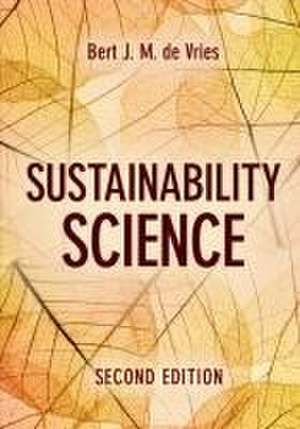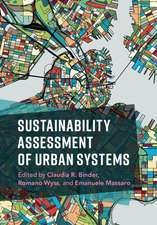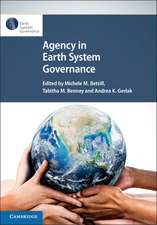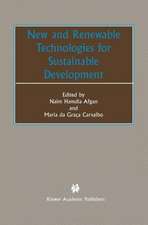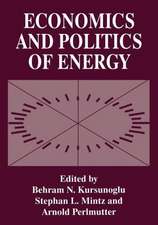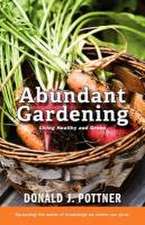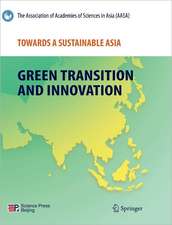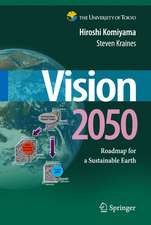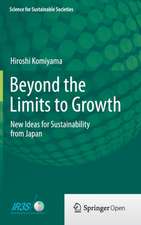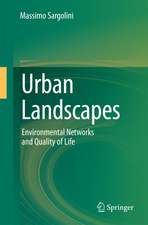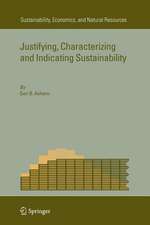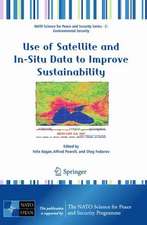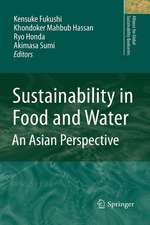Sustainability Science
Autor Bert J. M. de Vriesen Limba Engleză Paperback – 30 dec 2023
| Toate formatele și edițiile | Preț | Express |
|---|---|---|
| Paperback (1) | 396.50 lei 22-36 zile | +58.10 lei 5-11 zile |
| Cambridge University Press – 30 dec 2023 | 396.50 lei 22-36 zile | +58.10 lei 5-11 zile |
| Hardback (2) | 505.29 lei 43-57 zile | |
| Cambridge University Press – 30 dec 2023 | 813.45 lei 22-36 zile | |
| Cambridge University Press – 16 dec 2012 | 505.29 lei 43-57 zile |
Preț: 396.50 lei
Nou
Puncte Express: 595
Preț estimativ în valută:
75.88€ • 78.77$ • 63.27£
75.88€ • 78.77$ • 63.27£
Carte disponibilă
Livrare economică 03-17 martie
Livrare express 14-20 februarie pentru 68.09 lei
Preluare comenzi: 021 569.72.76
Specificații
ISBN-13: 9781009300216
ISBN-10: 1009300210
Pagini: 663
Dimensiuni: 254 x 179 x 30 mm
Greutate: 1.38 kg
Ediția:2
Editura: Cambridge University Press
Colecția Cambridge University Press
Locul publicării:New York, United States
ISBN-10: 1009300210
Pagini: 663
Dimensiuni: 254 x 179 x 30 mm
Greutate: 1.38 kg
Ediția:2
Editura: Cambridge University Press
Colecția Cambridge University Press
Locul publicării:New York, United States
Cuprins
Foreword; Preface; List of acronyms and abbreviations; List of units; Part I. Setting the Stage: 1. Sustainable development: a personal and societal aspiration; 2. Sustainable science: context and content; Part II. The State We're In and How We Got There: 3. Early states and civilisations; 4. Industrialisation: the great acceleration; 5. Modernity: the idea of progress; Part III. Engagement through Worldviews: 6. The worldview framework; 7. Worldviews: values, beliefs, ethics; Part IV. Understanding Sustainable Development: 8. Understanding, modelling, managing complexity; 9. Modelling sustainable development; Part V. Sustainability Themes: 10. Concepts, methods and indicators; 11. Population: humans and their habitat; 12. Pillars of development: health, education and mobility; 13. Nature: the life-support system; 14. Renewable resources: fisheries and forests; 15. Land and agro-food systems; 16. Water: the precious resource; 17. Energy: to a carbon-free supply; 18. Materials: towards a circular economy; 19. The economy; Part VI. Closure: 20. Stories about the future; Glossary; References; Index.
Notă biografică
Descriere
Thoroughly updated, integrated, transdisciplinary approach to sustainable development for advanced students, researchers, and policymakers.
Recenzii
'Achieving some sort of sustainability will be THE focus of global societies in the twenty-first century. To be successful, our leaders will need a perspective of centuries, the full breadth of scientific insights, system thinking skills, great cultural sensitivity, and an awareness of spiritual values. All of these are offered in this wonderful, unique text, which will be useful for decades.' Dennis Meadows, co-author of The Limits to Growth
'This textbook is one of the first truly all-encompassing introductions to sustainability science. It is methodical, clearly written and well-illustrated, truly a pleasure to handle and to read. It sets a standard for the discipline and solidly educates the generation of students that will most directly have to deal with the challenges of creating a sustainable Earth system.' Sander van der Leeuw, Dean, School of Sustainability, Arizona State University
'In this important new book, Bert de Vries has adopted a systems approach to examining all the issues that collectively amount to the determinants of sustainability. It is an excellent, comprehensive and up-to-date text dealing with not only the underlying biophysical science but also human behaviour. His use of interesting examples throughout makes it both instructive and enjoyable to read. I highly recommended it.' Brian Walker, CSIRO Ecosystem Sciences, Australia
'Bert de Vries' Sustainability Science is particularly welcome as it breaks ground in a new field, which so far lacks a proper systematic treatment. No wonder! The challenge is overwhelming: the book covers a series of disciplines and fields - geography, social and economic sciences, physics, chemistry, and biology - using a systems description and system dynamics as the main tool. De Vries not only succeeds in this overwhelming task but spices up the text with multiple excursions into history, philosophy, literature, not to forget the key issue of ethics. Justice and how we would like a future world to look like is always present. Bert's book is impressive, rich and inspiring.' Lars Rydén, Centre for Sustainable Development, Uppsala University
'This textbook is one of the first truly all-encompassing introductions to sustainability science. It is methodical, clearly written and well-illustrated, truly a pleasure to handle and to read. It sets a standard for the discipline and solidly educates the generation of students that will most directly have to deal with the challenges of creating a sustainable Earth system.' Sander van der Leeuw, Dean, School of Sustainability, Arizona State University
'In this important new book, Bert de Vries has adopted a systems approach to examining all the issues that collectively amount to the determinants of sustainability. It is an excellent, comprehensive and up-to-date text dealing with not only the underlying biophysical science but also human behaviour. His use of interesting examples throughout makes it both instructive and enjoyable to read. I highly recommended it.' Brian Walker, CSIRO Ecosystem Sciences, Australia
'Bert de Vries' Sustainability Science is particularly welcome as it breaks ground in a new field, which so far lacks a proper systematic treatment. No wonder! The challenge is overwhelming: the book covers a series of disciplines and fields - geography, social and economic sciences, physics, chemistry, and biology - using a systems description and system dynamics as the main tool. De Vries not only succeeds in this overwhelming task but spices up the text with multiple excursions into history, philosophy, literature, not to forget the key issue of ethics. Justice and how we would like a future world to look like is always present. Bert's book is impressive, rich and inspiring.' Lars Rydén, Centre for Sustainable Development, Uppsala University
